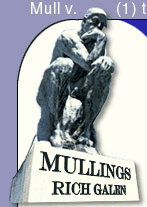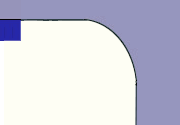|
|

|


The Foreign Policy Section of the SOTU
Rich Galen
Monday February 1, 2010
Click here for an Easy Print Version
Following his State of the Union speech, there were some muffled remarks that the President Obama had no "foreign policy section."
Not two weeks after I raised the alarm that China is much more than a big spot on the Asian map, but was rushing headlong into controlling the world's economy ( The Sound of China Breaking ) the Washington Post had a front pager yesterday suggesting that China has no intention at stopping at the front door of the bank.
To review the bidding, last week I noted that China had
- Overtaken the US in car sales
- Eclipsed US banks in value
- Surpassed Germany as the world's top exporter
The Post analysis, written by John Pomfret, pointed out that the Obama Administration's decision to sell "$6.4 billion worth of helicopters, Patriot Advanced Capability-3 missiles, minesweepers and communications gear" to Taiwan was met with an "indignant reaction."
The Chinese "also announced it would sanction the U.S. companies involved in the sale."
The Vice Foreign Minister hauled in the U.S. Ambassador to China, Jon Huntsman, to chat about the sale, a reaction which, along with other recent rumblings, "is worrying governments and analysts around the globe."
About a week ago, the Chinese wagged a finger in the face of Secretary of State Hillary Clinton when she chided China (along with other countries) for censoring Internet sites calling the U.S. an "information imperialist" and, according to the Financial Times, "telling Ms. Clinton to 'stop finger-pointing.'"
Pretty heady stuff to be telling the U.S. Secretary of State to "button it," but that wasn't the end of it. According to Bloomberg News, at China's request the issue of internet censorship was left off the agenda at the World Economic Conference in Davos which ended last night.
So, China, in denying internet censorship, leaned on the worlds bankers and industrialists to amend the agenda - in effect, censoring the conference.
That the bankers and industrialists, smiled with diffidence, bowed deeply, and acceded to the "request" is even more concerning than China's request.
At what everyone but the U.S. media calls the "failed" climate change conference in Copenhagen in December, according to the Post:
"China publicly reprimanded White House envoy Todd Stern, dispatched a Foreign Ministry functionary to an event for state leaders, and fought strenuously against fixed targets for emission cuts in the developed world."
Ok, that one was before Obama "reset" his Presidency last Wednesday, so he gets a pass on folding up like a water-logged yard-sale card table in the face of Chinese objections to what we have been told over and over again is the single most important issue facing humans.
China threatened neighboring Cambodia against granting sanctuary to 22 Chinese Muslims, some of whom China had accused of participating in anti-Chinese demonstrations last summer.
Cambodia sent them back and, as a "thank you note" China "signed 14 deals with Cambodia worth $1 billion.
Here's a protocol tip: If you want to meet with senior Chinese leaders, don't meet with the Dalai Lama first. China "denounced" German Chancellor Angela Merkel, cancelled a summit with France's President Nicolas Sarkozy, and according to Pomfret's piece
"suspended ties with Denmark after its prime minister met the Dalai Lama and resumed them only after the Danish government issued a statement in December saying it would oppose Tibetan independence and consider Beijing's reaction before inviting him again."
President Obama, on the other hand, "declined to meet the Tibetan spiritual leader, the Dalai Lama, before visiting China in November to avoid offending China's leaders."
Nevertheless, when President Obama went to China and acted like the new kid at school, the NY Times noted:
"China effectively stage-managed President Obama's public appearances, got him to make statements endorsing Chinese positions of political importance to them and effectively squelched discussions of contentious issues such as human rights and China's currency policy," said a [U.S.] China specialist.
China is the second largest economy in the world, behind only the U.S. but it is quickly becoming the most important economy because of the enormous potential for selling things to 1.3 billion Chinese (about a billion more people than are in the U.S.)
Now, they are becoming among the most important players on the diplomatic world stage and the U.S. and the E.U. seems to be at sea as to what to do about it.
No wonder there was no foreign policy section of the President's State of the Union speech.
On the Secret Decoder Ring today: Links to the Washington Post and NY Times articles. Also a Mullfoto which I think I may have stolen, but is still funny, and a Catchy Caption of the Day.
--END --
Copyright © 2010 Barrington Worldwide, LLC
Become a
Paid Mullings Subscriber!
(To join the FREE mailing list or to unsubscribe Click Here)

Current Issue |
Secret Decoder
Ring | Past
Issues | Email
Rich | Rich
Who?
Copyright �2007 Barrington Worldwide, LLC | Site design by Campaign
Solutions. | |
|


